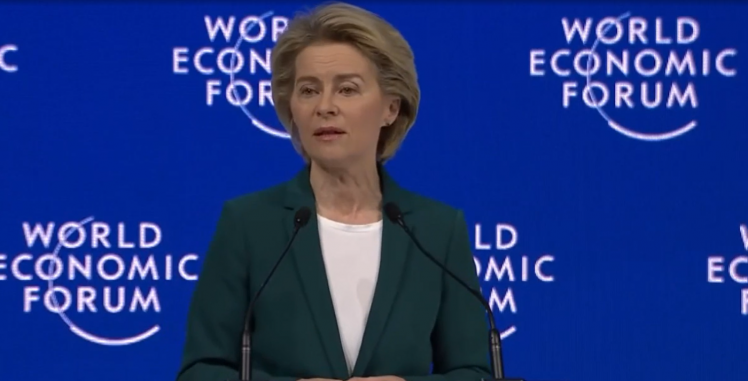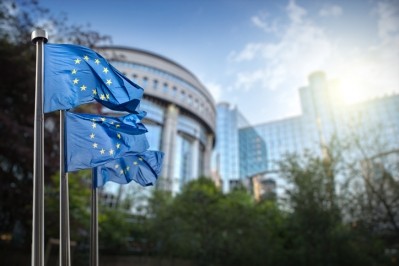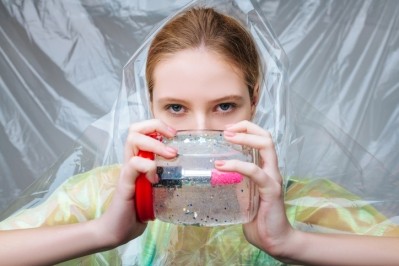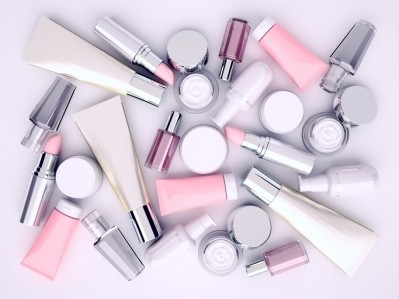EC president: Europe will do ‘whatever it takes’ to become climate neutral by 2050

Speaking at the World Economic Forum 2020 annual meeting in Davos-Klosters yesterday, President Von der Leyen said climate change was a global challenge that had to be addressed, urgently.
“The World Economic Forum’s Global Risk report identifies that the top five risks for the economy are all climate related,” she said.
“There is still scope to address these risks, but the window of opportunity is rapidly closing. We have to act now.”
Mobilising €1 trillion under European Green Deal to create a ‘green investment wave’
The European Commission published its European Green Deal back in December – outlining the Commission’s goal to drive Europe towards becoming the first climate-neutral continent by 2050 and enshrining climate-neutrality into law.
Acknowledging this move, Von der Leyen told Davos 2020 attendees: “Europe will be the world’s first climate neutral continent by 2050. And it will do whatever it takes to unlock the investment, the innovation and the creativity that is needed.”
Over the next decade, she said Europe would mobilise €1 trillion of investment towards this, through national co-financing, private investment, and support from the European Investment Bank.
“This will create a green investment wave, and there is demand for it,” Von der Leyen said.
Europe’s largest investors – 44 representing €6 trillion in assets – had already called on the EU to put climate neutrality into law, she said.
“The European Green Deal is our new growth strategy. The novelty and the difference to our fossil fuel-based model is that we will foster growth that is not extracting resources but that gives back to the planet more than it takes away.”
Beauty to prioritise sustainability investments under Europe’s push
Valued at €78.6 billion according to retail prices in 2018, Europe’s cosmetics and personal care market remained the largest in the world, and trade association Cosmetics Europe said environmental efforts would be prioritised.
Notably, it said industry would work to increase its use of biodegradable, recyclable and reusable packaging; develop more waterless formulations to avoid environmental impact during rinse-off; shift distribution transport from road to rail and from air to sea; and invest in sustainable sourcing and life cycle analysis.
Speaking to CosmeticsDesign-Europe at the end of last year, John Chave, director-general of Cosmetics Europe, said it was paramount industry reassessed its environmental position collectively.
“It’s not really possible anymore to disregard the green agenda. And I know companies don’t, of course, but for people working in the policy environment, green issues are not coming into more or less every aspect of business,” Chave said.
Moving forward, he said there would be important aspects to consider: remaining vigilant about policy developments and proactive as an industry.
Retail trade major EuroCommerce said it was ready to work with industry on sustainability, particularly in addressing key issues of concern to consumers like palm oil, deforestation and microplastics.
Christian Verschueren, director-general of EuroCommerce, previously said: “The role of manufacturers in this will be vital, and we are ready to work with them in finding ways forward which respond to consumer demand, and thus ensure that their products continue to be successful.”











![Chinese study highlights mental health challenges in atopic dermatitis, emphasising holistic patient care. [Getty Images]](https://www.cosmeticsdesign-europe.com/var/wrbm_gb_food_pharma/storage/images/_aliases/wrbm_tiny/publications/cosmetics/cosmeticsdesign-asia.com/headlines/formulation-science/chinese-research-linking-atopic-dermatitis-to-mental-health-underscores-need-for-holistic-care/17040623-1-eng-GB/Chinese-research-linking-atopic-dermatitis-to-mental-health-underscores-need-for-holistic-care.jpg)








